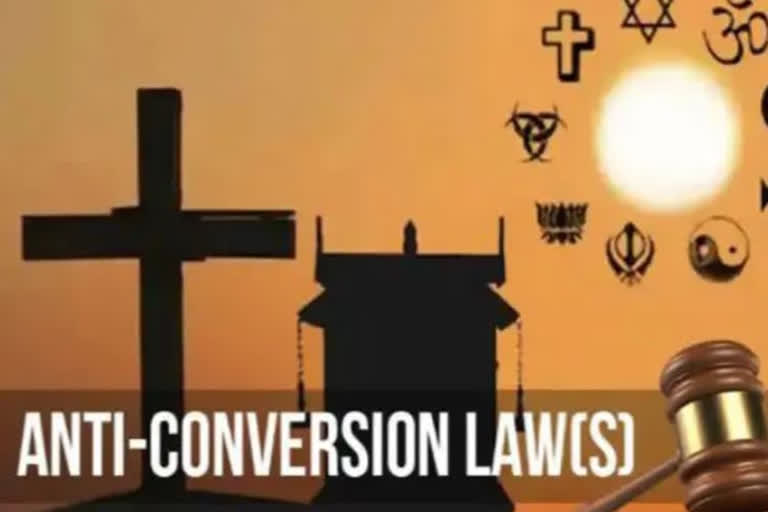New Delhi: The Jamiat Ulama-i-Hind on Thursday filed a PIL in the Supreme Court challenging the constitutional validity of conversion laws in several states including Uttar Pradesh, Madhya Pradesh, Gujarat, Uttarakhand, and Himachal Pradesh. The petition stated that these Acts are being used for the harassment interfaith couples and the violation of basic fundamental human rights as it invades the privacy of an individual by forcing him to reveal his religion.
Advocate Ejaz Maqbool, who filed the petition on behalf of Jamiat Ulama-i-Hind, stated that the Acts violate a person's privacy as it forces them to disclose their faith. He further alleged that the Acts leave a breeding ground for the harassment of the convert. It also questions the definition of the term 'allurement' mentioned in the Acts in question. It states that while the definition of allurement as per the Act has the phrase 'undue influence offers offers of divine displeasure', wherein ‘undue influence’ is wide and vague.
"Therefore, a religious preacher who simply states that following the teachings of his religion alone will enable a person to attain salvation would render himself liable for prosecution under the aforementioned Acts. Therefore, the Impugned Acts will stifle religious preaching and even practice of religion due to the vague and stringent nature of its provisions," the petition states.
Also read: Chhattisgarh church attack, anti-conversion row: 10 points
Advocate Maqbool further stated that the Acts will have an adverse impact on the rights of people to profess and propagate one’s religion, thereby violating Article 25 of the Indian Constitution. "Scrutiny by the state of such a personal decision is a grave assault on personal liberty of an individual and is violative of Articles 21 and 25 of the Constitution of India," the petition states. It also points out that the Acts proceed on the presumption that each religious conversion is illegal.
The acts on conversions in Uttarakhand and Himachal Pradesh were challenged once previously by the Citizen for Peace and Justice (CJP), citing that the acts were against the SC judgments given by Constitution benches that stated that the right to choose a partner is a part of privacy.



